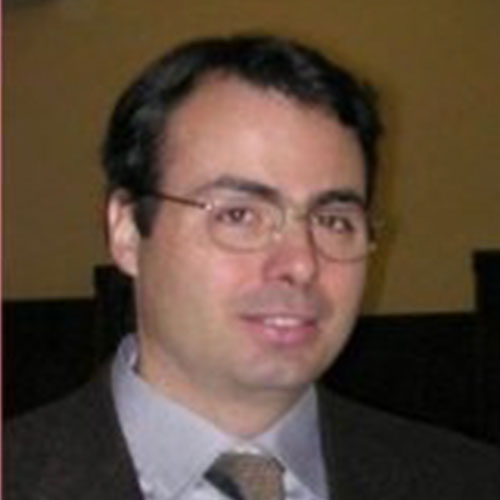2021 M. Irené Ferrer Awardee, University of Padova, Italy

Dr. Andrea Cignarella obtained his master degree in Medicinal Chemistry and Technology from the University of Milan in 1990 studying the role of the urokinase system in tumor cell invasion. He then joined the Department of Pharmacological Sciences at the University of Milan, where he received his PhD in Pharmacology of natural compounds in 1994. Dr. Cignarella went on to train as a Postdoctoral fellow in the laboratory of Professor G. Assmann at the University of Münster, Germany until 1998. He next returned to the Department of Pharmacological Sciences as a research associate and was appointed as an Assistant professor of Pharmacology at the University of Padova in 2004, where he joined the Department of Pharmacology and Anesthesiology. In 2010 he was appointed Associate professor at the same institution. In 2010 he spent 6 months at the Fred Hutchinson Cancer Research Center in Seattle as a Fulbright Research Scholar.
Awarded: $25,000
What is Dr. Andrea Cignerella studying?
Doctor Cignerella is studying the vulnerability of the endothelial cells which lines blood vessels in autoimmune diseases. Endothelial cells are the thin, flat cells that line the interior surface of blood vessels, forming a barrier between the blood and the rest of the vessel wall. Think of them as a kind of protective skin for your blood vessels. These cells aren’t just passive barriers—they’re actively involved in regulating blood flow, immune response, clotting, and even the movement of white blood cells in and out of the bloodstream.
Why study endothelium?
The endothelium, plays an important role in the response of tissue to inflammation that occurs in many diseases, including the response to heart transplantation. The endothelium is a thin layer of specialized cells called endothelial cells that lines the interior surface of all blood vessels—arteries, veins, and capillaries. You can think of it like the innermost “skin” or lining of your circulatory system, forming a critical interface between your blood and the rest of your body’s tissues.
What did Dr. Cignerella find during his research?
There is a difference in male and female responses to challenges to the immune system; female cells were more activated by inflammation than cells from males. Studying the molecular biology of endothelial cell response to inflammation (which is to modify its consequences) may provide better insight into focused therapy.
How did The Foundation for Gender-Specific Medicine’s grant help his research?
Our foundation grant helped the basic investigation that focused on the response of endothelial cells to an inflammatory challenge and enabled Dr. Cignarella to form a partnership with the Gender Medicine Reference Center based and the Italian National Institute of Health in Rome so that his work might be extended to assess the response of endothelial cells exposed to inflammatory mediators to estrogen and to pursue the molecular basis of the sex-specific response to these cells. His paper reporting his important fundamental work has just been accepted for publication in a peer-reviewed journal.
What is Dr. Cignarella’s current status?
Dr. Cignarella continues his research in the Department of Medicine at the University of Padua (Università degli Studi di Padova).
